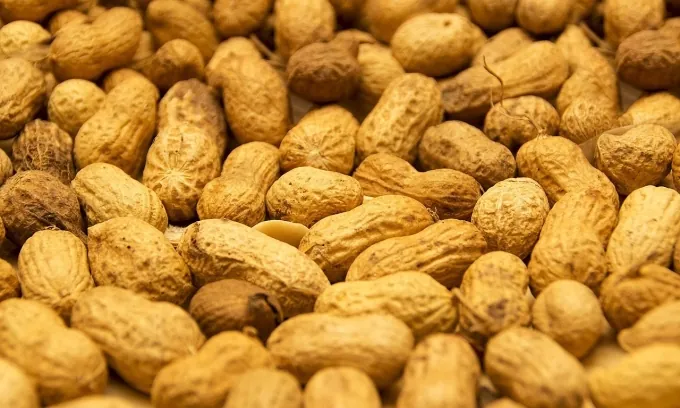
How Many Peanuts Should You Eat Daily for Optimal Health?
2025-03-27
Author: Nur
How Many Peanuts Should You Eat Daily for Optimal Health?
When it comes to snacking, peanuts often take the spotlight due to their rich nutritional profile. Experts from health platforms like WebMD recommend a moderate intake—approximately 1 ounce (around 28 grams) per day—to harness the benefits while steering clear of potential digestive issues.
Though technically classified as a legume rather than a tree nut, peanuts boast a plethora of similar nutritional perks. A 100-gram serving of raw peanuts packs a hefty 567 calories, 25.8 grams of protein, 16.1 grams of carbohydrates, and an impressive 8.5 grams of fiber. Moreover, they are loaded with 49.2 grams of fat, predominantly healthy fats: just 6.28 grams are saturated fats, while the rest consists of beneficial monounsaturated (24.43 grams) and polyunsaturated fats (15.56 grams).
Peanuts are also a treasure trove of vitamins and minerals such as biotin, copper, niacin, folate, manganese, vitamin E, thiamine, phosphorus, and magnesium. This nutrient-dense profile makes peanuts not just a tasty snack, but a superfood worth incorporating into your daily diet for numerous health advantages.
Health Benefits of Peanuts:
1. Heart Health Booster The nutrients found in peanuts—specifically magnesium, niacin, copper, and oleic acid—are known to support heart health. Consuming peanuts regularly may help lower bad cholesterol levels, which can significantly reduce the risk of heart disease. Studies suggest that replacing saturated fats with healthier fats like those found in peanuts can be beneficial for cardiac health.
2. Aid in Weight Management Paradoxically, despite being calorically dense, peanuts can promote weight loss and management. Their high protein content and monounsaturated fats can increase feelings of fullness, which may curb overeating. Additionally, the fiber content in peanuts plays a crucial role in digestive health and is associated with a reduced risk of weight gain.
3. Cancer-Fighting Properties The presence of resveratrol in peanuts—a powerful phytoestrogen known for its antioxidant properties—has garnered interest in cancer prevention research. Preliminary findings suggest that resveratrol might help inhibit the growth of cancer cells, indicating that peanuts could have a role in cancer prevention strategies.
4. Gallstone Risk Reduction Regular peanut consumption has also been correlated with a lower risk of developing gallstones. As gallstones primarily consist of cholesterol, the cholesterol-lowering effects of peanuts may contribute to this protective benefit.
5. Blood Sugar Management With a low carbohydrate content and a low glycemic index, peanuts are suitable for maintaining steady blood sugar levels. This characteristic makes them an excellent snack option for those managing diabetes or anyone looking to stabilize their energy throughout the day.
In summary, incorporating a moderate serving of peanuts into your daily diet can yield numerous health benefits. Remember, moderation is key, as even healthy snacks can lead to excess calorie intake if consumed in large amounts. Enjoy the crunch of peanuts for a deliciously healthy boost!



 Brasil (PT)
Brasil (PT)
 Canada (EN)
Canada (EN)
 Chile (ES)
Chile (ES)
 Česko (CS)
Česko (CS)
 대한민국 (KO)
대한민국 (KO)
 España (ES)
España (ES)
 France (FR)
France (FR)
 Hong Kong (EN)
Hong Kong (EN)
 Italia (IT)
Italia (IT)
 日本 (JA)
日本 (JA)
 Magyarország (HU)
Magyarország (HU)
 Norge (NO)
Norge (NO)
 Polska (PL)
Polska (PL)
 Schweiz (DE)
Schweiz (DE)
 Singapore (EN)
Singapore (EN)
 Sverige (SV)
Sverige (SV)
 Suomi (FI)
Suomi (FI)
 Türkiye (TR)
Türkiye (TR)
 الإمارات العربية المتحدة (AR)
الإمارات العربية المتحدة (AR)